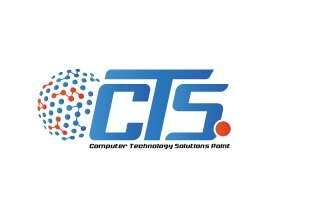In today’s fast-paced business world, technology is ever-evolving to meet the increasing demands for efficiency, speed, and data security. One area where these advancements are particularly noticeable is in the realm of printers. While printers may seem like simple devices designed for producing physical documents, modern printers—especially in enterprise environments—have evolved significantly. They now come with complex features that include scanning, copying, and even faxing functionalities. One key component of this technological evolution is the printer hard drive.
What is a Printer Hard Drive?
At its core, a printer hard drive is an internal storage device embedded within a printer. It works much like the hard drive in your computer, storing data that the printer can access for tasks like printing, scanning, and other multi-functional capabilities. Unlike traditional printers that simply process print jobs and send them to a print queue, printers with hard drives have the ability to store large amounts of data directly on the device.
This functionality not only improves workflow efficiency but also offers a host of other benefits for businesses, particularly those in fast-paced environments that need to process high volumes of documents. In this blog, we'll explore how printer hard drives work, why they are important, and the features available on CTS Point's offerings.
The Role of Printer Hard Drives in Modern Printers
-
Data Storage and Caching: One of the main functions of a printer's hard drive is storing and managing print jobs. With a hard drive, a printer can cache print jobs before processing them, improving the overall speed of print queues. This means that even when a large print job is sent to the printer, it doesn’t necessarily cause delays or slowdowns for other users. The printer can store data on its hard drive and quickly retrieve it when needed.
-
Print Job Management: Printer hard drives provide users with the ability to manage their print jobs better. This includes options to hold, pause, or delete jobs directly from the printer’s user interface. The stored data can also be accessed remotely for better print job control. This capability is especially important in office environments where different users may need access to a printer at different times.
-
Security and Confidentiality: For businesses, security is a top priority. Many modern printers come equipped with hard drives for the purpose of securely storing sensitive documents. These printers can support encrypted printing and require user authentication before releasing a print job. This means documents are only printed when the authorized person is physically present to collect them, ensuring confidentiality. Additionally, once the job is complete, the data can be erased from the printer’s hard drive to prevent any unauthorized access.
-
Enhanced Printing Speed and Quality: With a printer hard drive, print speeds can be significantly improved. As print jobs are stored on the hard drive, the printer can more efficiently manage multiple tasks simultaneously without bogging down the system. This results in faster print times and a smoother printing process overall. Furthermore, the printer’s hard drive can store complex print settings and custom templates, allowing for faster and higher-quality prints when needed.
-
Advanced Functionality and Multi-Tasking: In addition to basic printing, modern printers with hard drives support advanced multi-functional features, such as scanning and faxing. The hard drive acts as a temporary storage solution for scanned documents, enabling the printer to manage and retrieve scanned files more efficiently. For businesses that handle large volumes of documents, this capability is invaluable, as it reduces the need for external storage devices and ensures that files are readily available when needed.
CTS Point: Printer Hard Drives and Solutions
CTS Point offers a wide range of printing solutions, and many of these printers are equipped with advanced hard drives. These devices are designed to cater to high-volume printing environments, where efficiency, speed, and security are essential.
Features of CTS Point Printers with Hard Drives:
-
Large Storage Capacity: CTS Point printers come with hard drives that have ample storage capacity, ranging from several gigabytes to terabytes. This allows businesses to handle large print jobs, high-quality images, and other complex tasks without performance degradation.
-
Security Features: Security is a primary concern with CTS Point printers. Their hard drives support features like encrypted storage and secure printing, ensuring that sensitive data is protected at all times.
-
Efficient Document Management: CTS Point printers are equipped with built-in document management tools that help users store, retrieve, and manage print jobs effectively. Whether you are in a corporate office or a production environment, these printers streamline workflow, enabling faster and more organized print operations.
-
Integration with Network Systems: CTS Point printers with hard drives can be easily integrated into corporate networks, allowing users to print directly from their computers or mobile devices. Additionally, network administrators can manage these printers remotely, keeping operations running smoothly without the need for hands-on troubleshooting.
Conclusion
As businesses continue to embrace digital transformation, the role of printer hard drives becomes increasingly significant. Not only do these hard drives enhance performance, but they also enable better print job management, higher security, and improved operational efficiency. CTS Point offers a variety of printers equipped with hard drives that cater to diverse business needs. Whether you're looking to streamline workflows, increase print speed, or enhance document security, CTS Point’s printers with integrated hard drives offer a solution that delivers on all fronts.
For companies in need of high-performance printing systems that offer both functionality and reliability, choosing a printer with a hard drive is an investment that will pay off in the long run.

